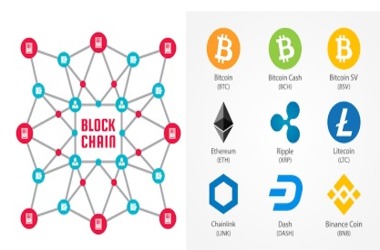
The Rise of Cross-Chain Criminal Activities
Elliptic’s report underscores the surge in cross-chain crimes, surpassing the platform’s annual predictions despite calculations only extending through July of this year. The platform had initially forecasted that approximately $6.5 billion in illicit or high-risk funds would be laundered across various blockchains by the end of the year.
Remarkably, this increase in cross-chain criminal activities occurred against the backdrop of declining cryptocurrency and crypto-asset prices. Elliptic attributes this surge in part to the expanding landscape of available crypto-assets, where Bitcoin is no longer the sole option. The cryptocurrency ecosystem now boasts tens of thousands of crypto-assets, many of which possess features that appeal to criminals. For instance, some crypto-assets offer enhanced anonymity, such as privacy coins like Monero, while others maintain stability by being pegged to government-backed currencies, like stablecoins such as Tether (USDT) or DAI.
DeFi’s Role in Facilitating Cross-Chain Crime
Elliptic’s report also sheds light on the role of decentralized finance (DeFi) services in facilitating cross-chain crime. Many DeFi platforms that enable the conversion of crypto-assets do not require users to undergo ID verification or provide legal information, making them attractive to criminals seeking to move stolen funds. Among the DeFi services facilitating such activities are decentralized exchanges (DEXs), cross-chain bridges, and coin swap platforms, many of which are predominantly based in Russia.
The Challenge of Tracking Crypto-Assets Across Blockchains
Crypto-assets laundered through unregulated conversion channels and across different blockchains pose a formidable challenge for authorities attempting to trace and apprehend perpetrators. Consequently, those involved in such illicit activities often evade capture. The report also highlights instances of terrorist organizations employing crypto wallets and holding more than 80 assets across over 26 blockchains, further accentuating the pressing need for effective oversight and regulation in the cryptocurrency space.
The Role of Lazarus Group in Cross-Chain Laundering
Elliptic’s report highlights the Lazarus Group, a North Korean cyberhacking organization, as a prominent player in cross-chain crime. The group ranks as the largest source of illicit funds laundered through cross-chain bridges and the third-largest contributor to overall cross-chain crime, having laundered over $900 million through these methods.
DeFi: A Double-Edged Sword
It is crucial to note that while DeFi platforms can be exploited for illegal activities, they also serve legitimate purposes, including investments and gaming. Consequently, the challenge lies in striking a balance between fostering innovation in the DeFi sector and implementing safeguards to prevent its misuse.
In conclusion, the proliferation of cross-chain crime, as highlighted by Elliptic’s report, underscores the urgency for enhanced oversight and regulation within the cryptocurrency and blockchain space. As the crypto ecosystem continues to evolve, addressing these challenges will be imperative to ensure the security and integrity of the broader financial landscape.
